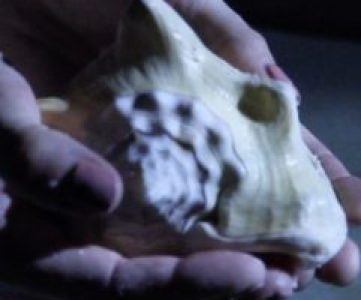TT JOURNAL, VOL.1, ISSUE 3, 8TH OCTOBER 2021
Pavel Klusák
For me, the story of Vojtěch and Irena Havel emerges out of the atmosphere of the turn of the eighties and nineties in Prague. In the 1980s, the streets and public life were soaked in grey and worn out dusk. Late totalitarianism prevailed, no one believed in the regime anymore and people were losing a sense of themselves within all the media lies. In parallel, however, a bustling life in the underground developed: from post punk through protest songs to contemporary classical music, and overlaps with theatre and happenings. People from this multi-genre scene used to meet frequently and were sticking by each other, irrespective of their working methods. At that time, an ensemble that formally belonged to classical music began to perform in Prague, quickly acquiring young independent musicians. The ensemble, called Capella Antiqua e Moderna, was rooted in humility and tradition: they performed old renaissance music. But the sound, tuning and performances echoing in the old churches inspired the musicians to develop their own music: from the old the new emerged. Vojtěch and Irena belonged to the core of the group: from here grew their alliance, their playing together as a duo.
When the Berlin Wall was demolished, fresh freedom and manic activity flooded Czechoslovakia. The isolation of the country from the rest of the world ended. In these years when people learned to do business and enjoyed a greater amount of consumerism than was possible until then, the music of Irena and Vojtěch pulsed as inconspicuously, quietly and patiently as it did up till now. It spanned this period of historical change with its own plan: by focusing on what does not change despite a change in state regime, namely the dimensions and depth of inner freedom. I was one of those who, in addition to the resounding transformation of our country also needed a quieter and concentrated continuum. Judging by audiences at their concerts (often in tearooms) and the critical success of their albums Malé modré nic / Little Blue Nothing, Háta H., Tajemná Gamelanie (Mysterious Gamelanie) or Hudba ticha / Music of Silence, there were many of us.
In the Havel’s music you can easily hear a repetitive pulse, a music of recurring motifs inspired by minimalism. What’s crucial is that Vojtěch and Irena combine the free inspiration of the minimalists (as well as traditional music of Asia and Africa) with deeply Central European instruments: the baroque viola da gambas. Instrumantation played a significant role in their music which, just like Prague’s past, architectonically apparent on every step, traced through like a ghost into the present day, to speak to the people of today and take on a different role to the one of 400 years ago.
When Vojtěch and Irena started to travel to India repeatedly, yet another unique element entered their style. Since the beginning of the 1990s, there is music of author gestures which spans a wide and surprising range, from fragile post-Satie piano to loud ritualistic percussions and gongs. Their work has an unspecified, open spirituality that speaks of caring, compassion and focused way towards what’s essential. What cannot be ignored here is the closeness and shameless intimacy of both partners on stage: strong personal charge balances out all that is universal. I think that some of the audience returns to Vojtěch and Irena year after year because their music is one of mystery and one of safety.
The couple, whose life and music are like Möbius’ strip have had many important collaborators in 35 years. They have participated in the birth of Czech video art (Radek Pilař), accompanied existential contemporary dance (Eva Černá and Karel Vaněk). A documentary about the couple was made by the celebrated independent filmmaker Vincent Moon. Bryce Dessner’s composition Little Blue Something is a tribute to the music of the Prague duo and uses its motifs: it was recorded by the Kronos Quartet on the album Aheym. Musicians from The National, as well as Sufjan Stevens, are among the long-time fans of Irena and Vojtěch Havel. Their music is open and still receiving new stimuli. But even so, its germ could hardly have sprouted elsewhere than in “Praga magica”, a city where the past permeates the present and the demons of today struggle with those who have lived here for centuries.
[bandcamp width=350 height=470 album=3096059125 size=large bgcol=ffffff linkcol=0687f5 tracklist=false]
To find out more about Irena and Vojta Havels and their music, visit their website: https://havlovi.wz.cz/
Pavel Klusák is a music writer and a festival curator. He broadcasts experimental music in Czech Radio. His film Music By Liška (Hudba Zdeněk Liška) is dedicated to the revolutionary soundtrack composer from the Czechoslovak New Wave era.
